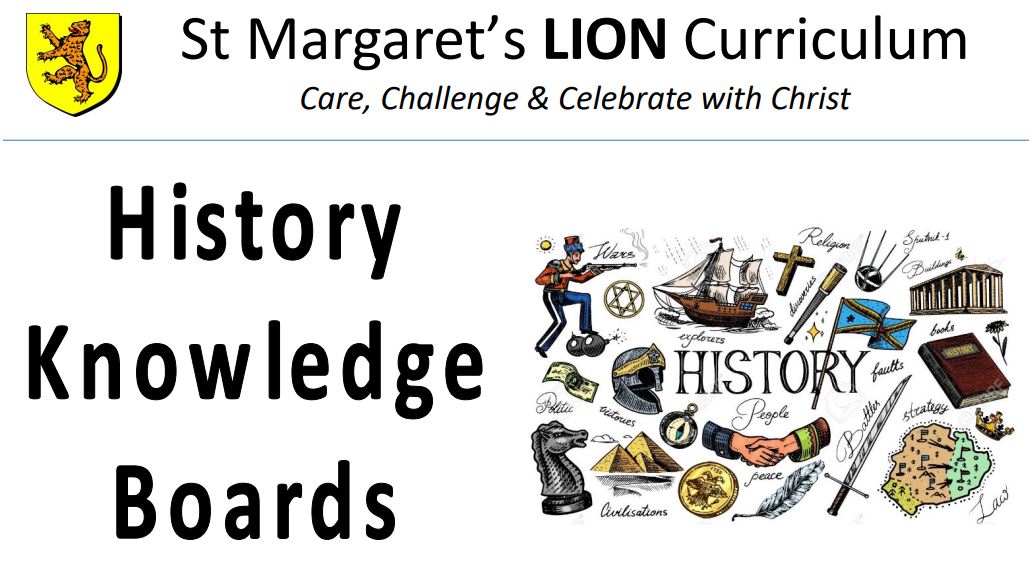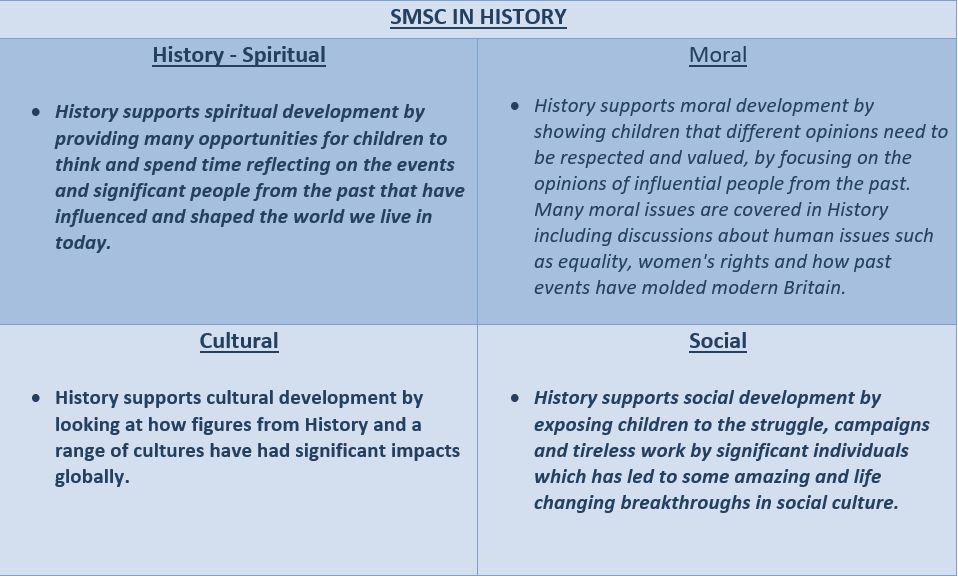History Curriculum
The information below describes our rationale for teaching history in our school.
a. Who leads this subject?
b. History Curriculum Intent
Developed with a national leader in history curriculum design:
At St Margaret’s CE Primary school, we aim to ignite the children’s curiosity to ask questions and find out more about Britain’s past and that of the wider world. Exciting and engaging learning opportunities allow children to explore the concept of continuity and change, to see how we arrived ‘here’ and to make sense of the present day! Our curriculum provides children with opportunities to think critically, weigh evidence and develop perspective and judgement. Through the teaching of History, we endeavour to teach children to understand the complexity of people’s lives, the diversity of societies and relationships between different groups and the challenges of their time.
c. History Units (Top Level Coverage)
d. History Knowledge Boards
Some aspects of our teaching are single subject based but our integrated subject approach ensures that we have the National Curriculum Coverage.
Our knowledge boards have been designed by our curriculum team of experts and secures the coverage and progression through our school.
History Knowledge Board:
https://drive.google.com/drive/folders/19uPwpZO6lGMM0U71oSV1fEYvcTU-0cUO?usp=sharing
e. Spiritual, Moral, Social and Cultural education in History
f. History National Curriculum Purpose
A high-quality history education will help pupils gain a coherent knowledge and understanding of Britain’s past and that of the wider world. It should inspire pupils’ curiosity to know more about the past. Teaching should equip pupils to ask perceptive questions, think critically, weigh evidence, sift arguments, and develop perspective and judgement. History helps pupils to understand the complexity of people’s lives, the process of change, the diversity of societies and relationships between different groups, as well as their own identity and the challenges of their time.
g. History National Curriculum Aims
The national curriculum for history aims to ensure that all pupils:
• know and understand the history of these islands as a coherent, chronological narrative, from the earliest times to the present day: how people’s lives have shaped this nation and how Britain has influenced and been influenced by the wider world
• know and understand significant aspects of the history of the wider world: the nature of ancient civilisations; the expansion and dissolution of empires; characteristic features of past non-European societies; achievements and follies of mankind
• gain and deploy a historically grounded understanding of abstract terms such as ‘empire’, ‘civilisation’, ‘parliament’ and ‘peasantry’
• understand historical concepts such as continuity and change, cause and consequence, similarity, difference and significance, and use them to make connections, draw contrasts, analyse trends, frame historically valid questions and create their own structured accounts, including written narratives and analyses
• understand the methods of historical enquiry, including how evidence is used rigorously to make historical claims, and discern how and why contrasting arguments and interpretations of the past have been constructed
• gain historical perspective by placing their growing knowledge into different contexts: understanding the connections between local, regional, national and international history; between cultural, economic, military, political, religious and social history; and between short- and long-term timescales









 Tweets by @smceps
Tweets by @smceps